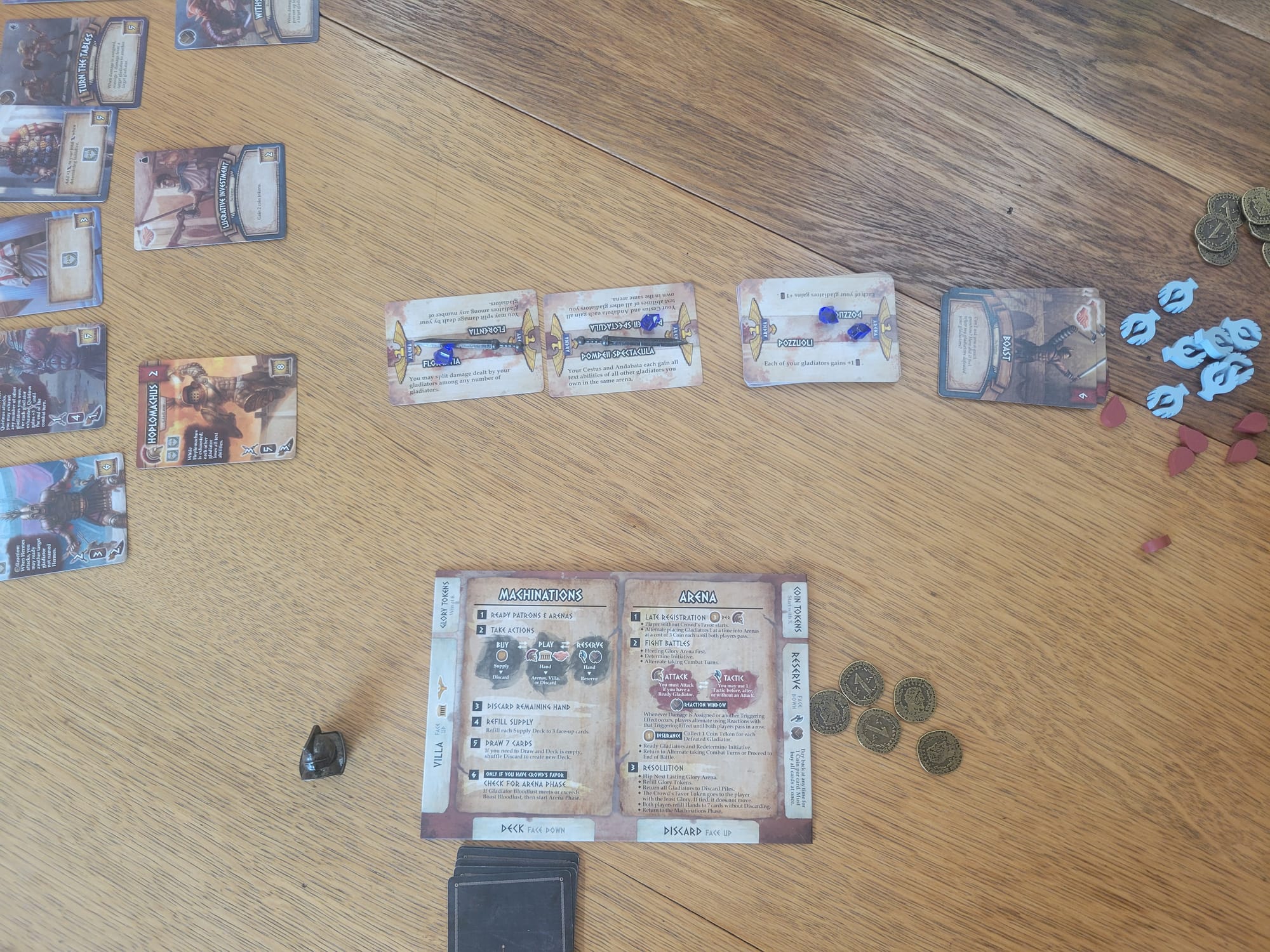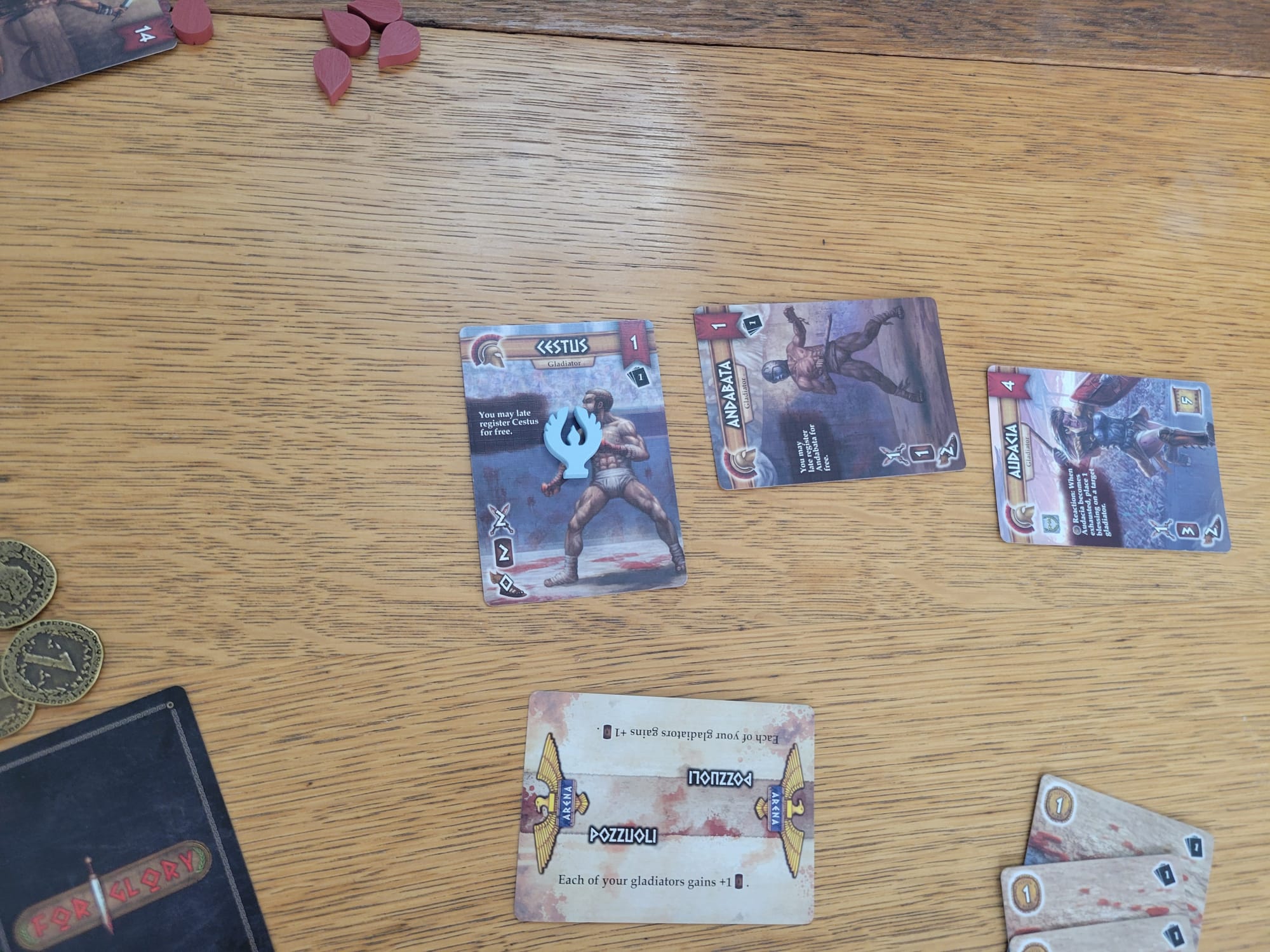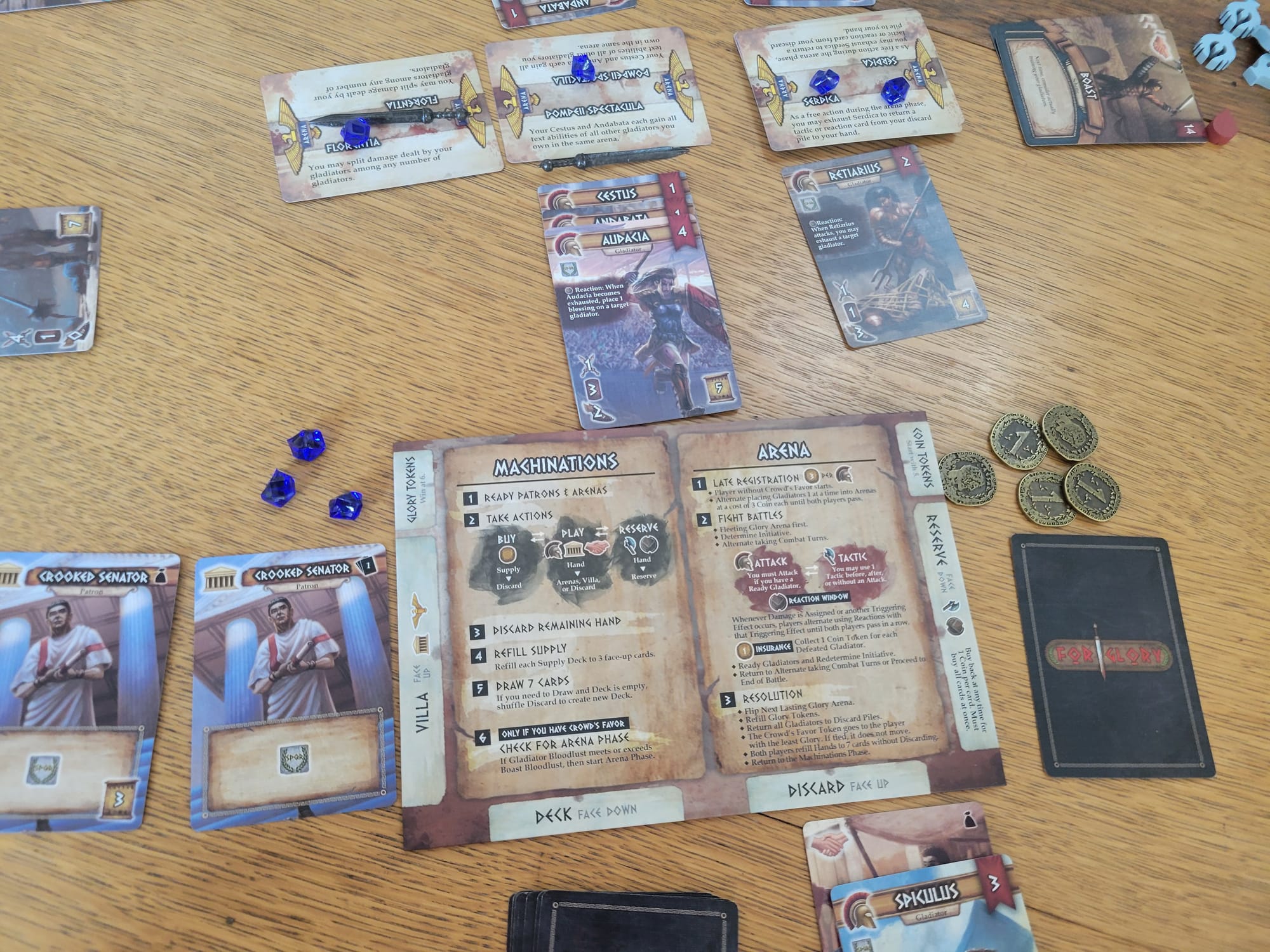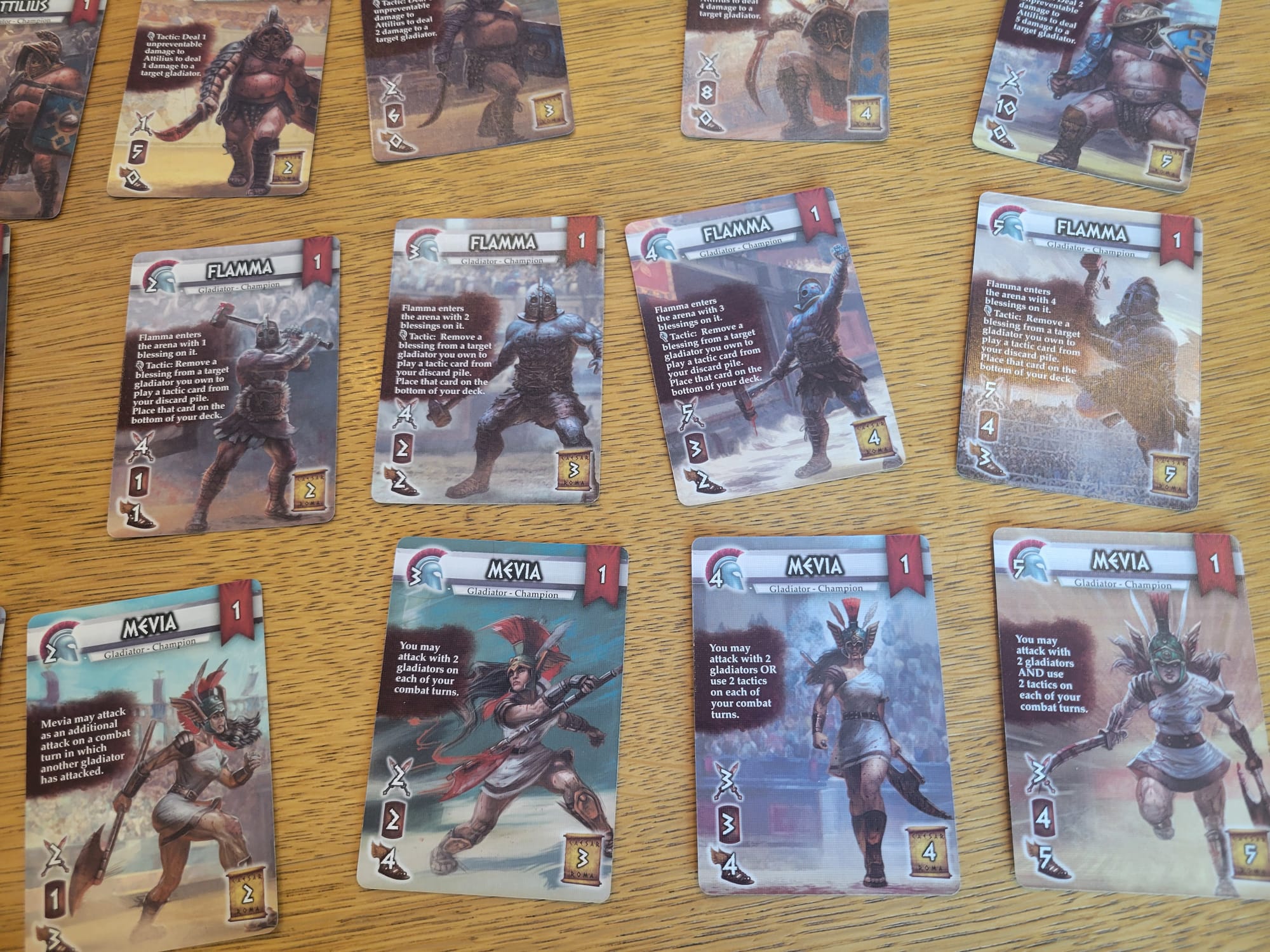Ever since Star Realms took the deck building genre by storm, it's felt like every new innovation in the genre that caught my eye and stuck to the two player count wound up being a banger. Undaunted? Awesome. Kapow? Sleeper hit. Star Wars? I'm a fanboy, so of course I love it. But to my eternal shame I ignored For Glory when it debuted, mostly because I couldn't care less about Rome. Thankfully, it came up in our podcast about deckbuilding; I noticed we had a copy in our backlog and checked it out.

At first, I bounced off For Glory’s multi-phase gameplay of competing gladiator schools, but I realized I was trying to force a square gladius into a round scabbard. I wanted to rely on my instincts from previous deckbuilders, building a strong economy and thinning my deck before pivoting into a victory condition, but the design of For Glory intentionally makes that impossible. As much as making the numbers get bigger and running your deck as a super efficient engine that does one thing makes your monkey brain happy, it doesn't provide an actual decision space. Actions, the first phase of a round, plays the most like a traditional deckbuilder, with players buying cards from the economy, tactic, and gladiator decks’ markets, playing gladiators up to their patron limit, and storing tactics to be used later once the round’s bloodthirst threshold is reached and the arena phase starts.

In the arena phase, your economy means nothing beyond your initial chance to buy any tactics cards you had stashed away back into your hand for the upcoming fight: otherwise, all that gold is just dead cards mocking you from your hand while your gladiators trade blows in a format that will be thoroughly familiar to unit based card games: each gladiator does its attack in damage to another until it's taken more damage than it can handle. Of course, the more expensive gladiators have better stats and/or abilities, but the aforementioned tactics cards that gum up your deck during the other phase are what can swing an otherwise unwinnable fight in your favor. When you actually win an arena, you nab the pike of sweet glory you need to win the game, along with that arena's power and a boast card that'll add even more chaff to your deck.

After adding everything together; the different phases pulling you in different directions, the lack of deck thinning outside of one starter card that's also good economy, and multiple markets, For Glory hands both players a mess of a deck that allows them to ask and answer each other’s questions instead of just throwing raw numbers efficiency around like a kid with a toy sword until the game declares a winner. In a genre that's overwhelmingly about making your deck as svelte as possible, every time you find a well-implemented case of clumsy interaction, that's pretty damn special. Toss in the little details like the inescapable draw of stabbing your opponent with tiny metal swords and hamming it up shouting the lines on the boasts, and For Glory earned a spot on my shelves.
For Glory
Great
If you're looking for a unique two-player deckbuilder, you can't go wrong with For Glory. The art may be “generic Ancient Rome,” but the gameplay hits that sweet spot between strange and familiar.
Pros
- High interaction
- Tons of decision space
Cons
- People who want a deckbuilder that adheres to genre norms should look elsewhere
- Ancient Rome is a worse theme than Renaissance mercantilism, imho
This review is based on a premium copy provided by publisher.
The Champions expansion, on the other hand, is a disparate pile of modules and extra cards that mostly fail to impress. While the blessing tokens that block the first instance of incoming damage on a gladiator allows more avenues of interaction and the titular champion gladiators can be drafted before the game to provide some asymmetry and more interesting decision space, the other bits are less successful. The solo mode is extant, but the additional players morph the elegant duel into a munchkinesque deckbuilder where everyone gangs up on the leader until eventually everyone has enough glory that someone has to win.

For Glory: Champions Expansion
Mediocre
I'll play with the expansion whenever I play because I have it, but my usual stance on expansions (hold off until you've played the base game to death but still love it) holds true for Champions.
Pros
- Champion gladiators and blessings give players even more levers to pull at each other
- The addition of a solo mode is nice for those of y'all that are into that
Cons
- The four-player mode is a cluster
- now I've got cardboard coins mixed in with my metal ones from the base game like a feral madman
This review is based on a retail copy provided by publisher.





















